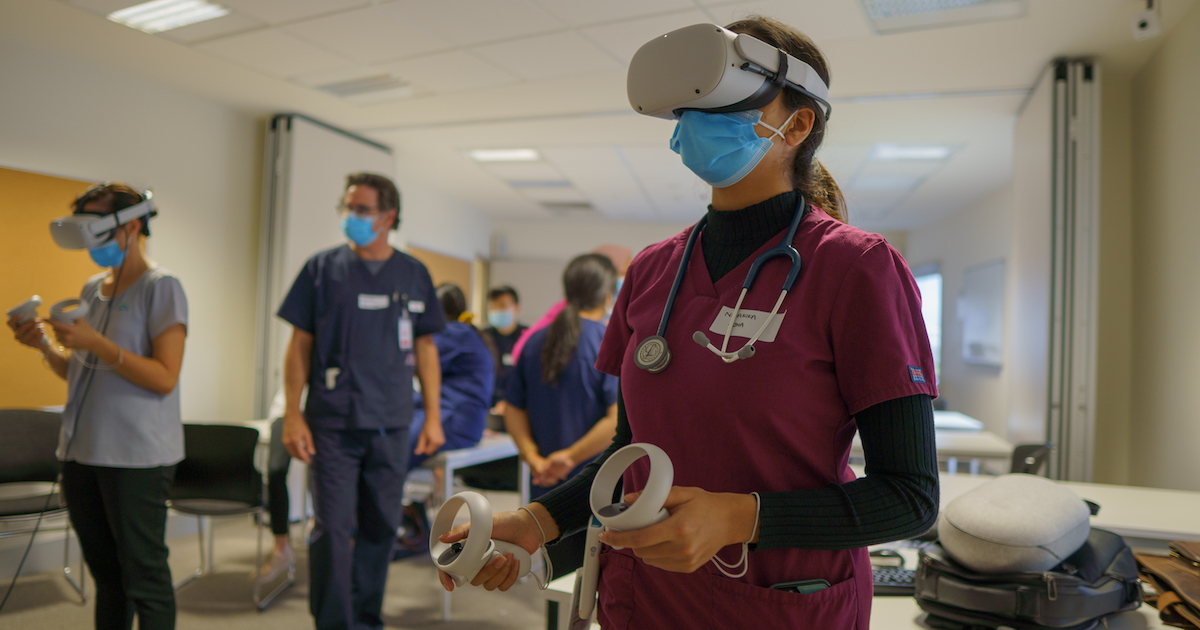In today’s dive, we examine a significant study that showcases the potential of Virtual Reality (VR) in conjunction with Cognitive Behavioral Therapy (CBT) for managing chronic pain.
“Remote cognitive behavioral therapy utilizing an in-home virtual reality toolkit (Vx Therapy) reduces pain, anxiety, and depression in patients with chronic cervical and lumbar spondylytic pain: A potential alternative to opioids in multimodal pain management” by Matthew J. McGirt et al.
Full Article: https://pubmed.ncbi.nlm.nih.gov/38033880/
Key Insights:
- Vx Therapy: This approach combines VR with cognitive behavioral therapy, offering a non-invasive, non-pharmacological option for pain management.
- Significant Improvements: Patients reported significant reductions in pain intensity, anxiety, and depression levels.
- Sustained Benefits: VR acutely reduced pain by an average of 33% and anxiety by 46%, with the duration of pain relief increasing over time.
Methodological Approach:
- The research included 145 patients in a 14-week program combining VR with cognitive behavioral therapy.
- The program involved weekly encounters with a trained therapist and daily VR sessions with 50 modules.
- Pain, anxiety, and depression were measured using PROMIS (Patient-Reported Outcomes Measurement Information System) at baseline and after the program.
- VR’s immediate effect on pain and anxiety was quantified, showing significant reductions lasting several hours post-use.
Critical Observations:
- Immediate vs. Long-Term Efficacy: While the study shows immediate and sustained relief, the long-term effectiveness of VR therapy, particularly post-treatment, remains an area for further research.
- Integration Challenges: The integration of VR with traditional therapy represents a significant advancement, yet it also poses challenges in terms of standardization of protocols and ensuring consistent therapeutic outcomes across diverse patient populations.
- Generalizability: The study’s results, while promising, may not be universally applicable given the specific patient cohort and treatment conditions. Further studies are needed to validate these findings in broader and more diverse populations.
Ethical and Practical Considerations:
- Accessibility and Cost: The use of Vx Therapy, while non-invasive and non-pharmacological, could be impacted by the cost and current availability of VR technology. Addressing these factors is essential for ensuring wider accessibility, particularly in settings with limited resources.
- Patient Adaptability and Support: The home-based nature of this therapy is advantageous for patient comfort and convenience. However, it also highlights the need for user-friendly VR systems and adequate support mechanisms to assist patients, especially those less familiar with technology.
- Data Privacy and Security: As with any remote therapy, the implementation of VR solutions must include strong data privacy and security measures. This is critical to protect sensitive patient information and maintain the integrity of the therapeutic process.
Quelle:




